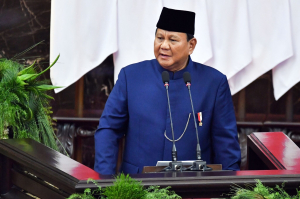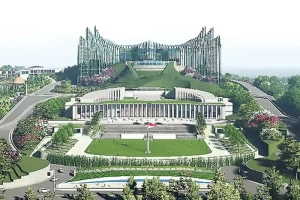Krakatau Daya Listrik develops solar panel giving impacts on reducing emissions
PT Krakatau Daya Listrik (KDL) has successfully developed solar panel installations with four different mechanisms. This subsidiary of the Chandra Asri Group has installed solar panels in various projects, including industrial and retail.
The total capacity of new renewable energy electricity is 958 kWp, with a target of achieving 3 MWp of solar power generation projects in 2023. The successful development of solar panels has resulted in annual electricity savings of up to 40 percent. Additionally, it has reduced carbon emissions by 561 tons of CO2 per year.
This innovation is one of KDL's efforts to contribute to the Indonesian government's goal of achieving renewable energy targets, in line with Presidential Regulation (PERPRES) No. 112 of 2022.
Nandang Hariana, President Director of Krakatau Daya Listrik, explained that the company has successfully provided new and renewable energy solutions for both industrial and retail sectors through the development of these four solar panel installation mechanisms.
"KDL has four mechanisms for installing solar panels," he said.
These mechanisms include:
- Solar On-Grid System: Integrating solar panels with the electricity grid, allowing the energy generated to be directly distributed through the grid without requiring batteries for backup.
- Solar Off-Grid System: Operating independently without connection to the electricity grid, requiring energy storage in batteries for usage based on battery capacity.
- On-Grid with Battery Back-Up System: Solar panels feed energy into the electricity grid and store excess energy in batteries as backup when the sun is not shining.
- Solar Hybrid System: Combining various energy sources to meet building electricity needs and enabling integration between different systems.
"With these various options, KDL can provide solar panel installation solutions that match customer needs," said Nandang.
KDL's flagship projects include rooftop photovoltaic (PV) installations that can also be used in residential areas, as well as ground-mounted PV systems and floating PV installations. These solar panel installations are named according to their locations: rooftop, ground, and float.
Internally, KDL has installed solar panels at several important locations, such as the Main Transfer Station 150 kV building, parking areas, and TMS workshop areas, with a total capacity of over 400 kWp.
Externally, the company has contributed through PV installations in PT Krakatau Steel's technology building and PT Krakatau Pipe Industries' coil warehouse.
Furthermore, KDL plans to initiate a floating PV project at the Krenceng Reservoir of PT Krakatau Tirta Industri. The construction of the first phase is set to begin in 2024 with a capacity of 9.6 MWp, eventually reaching a total capacity of 32 MWp.
All these initiatives reflect KDL's commitment to contribute to sustainable and renewable energy development while reducing environmental impact. According to Nandang, renewable energy will become the primary choice for power generation industries in the long term because of its sustainability. Renewable energy relies on unlimited natural resources, such as sunlight for solar power.
"This shows that renewable energy has long-term advantages in maintaining a sustainable energy source," Nandang said.
Chandra Asri acquired 70 percent of KDL at the beginning of 2023, affirming the company's commitment to excel in businesses by expanding into the infrastructure sector.
Tag
Already have an account? Sign In
-
Start reading
Freemium
-
Monthly Subscription
30% OFF$26.03
$37.19/MonthCancel anytime
This offer is open to all new subscribers!
Subscribe now -
Yearly Subscription
33% OFF$228.13
$340.5/YearCancel anytime
This offer is open to all new subscribers!
Subscribe now






